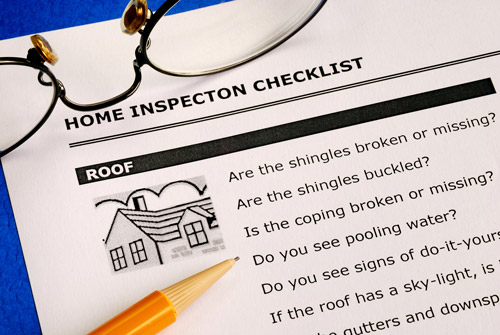FAQs by Home Buyers

Below are some of the most asked questions by home buyers regarding the process of buying a home.
What is the difference between “pre-qualified” and “pre-approval”?
If you are “pre-qualified” through a lender, you have spoken to a loan officer and supplied information regarding your financial situation such as your employment status, income and debts owed. Based on this information, the loan officer decides on what price home you would be able to afford to purchase. The loan officer will send a letter stating this qualification. However, the bank does not verify the information in a pre-qualification.
In a “pre-approval,” the loan officer has created a file and verified the buyers’ information. With this part of the loan process out of the way, the transaction can usually move a lot faster, and the seller can feel strongly that the buyer can afford to buy their property.
How much money do I need to buy a home?

You will need to have money for a down payment, and you will also need money for the closing costs. The amount of your down payment will depend on what type of loan you are using. There are two major types of loans: conventional loan and non-conventional loans.
A conventional loan is any loan that is not secured by a government entity. These loans require a higher FICO credit score to qualify, usually 620. Conventional buyers usually put 20% down on a home but there are conventional loans that require only a 5% down payment but require the buyer to pay for mortgage insurance.
A non-conventional loan is backed by the government. They offer different and more adjustable qualification factors. These programs were developed to help the first time buyer achieve homeownership with less than a 20% down payment.
What is Agency in the Real Estate Transaction?
“Agency” determines what legal responsibilities your real estate professional owes to you. All states today have laws regarding consumer representation in real estate transactions. “Agency” was brought about by numerous lawsuits resulting from consumers being unclear as to who the agent was representing. North Carolina has three types of agency relationships: Buyer Agency, Seller Agency, and Disclosed Dual Agency.
In Buyer Agency, the agent works in the buyer’s best interest throughout the home buying process. Here in North Carolina, the buyer’s agent is paid by the seller through the commission split entered into the Multiple Listing Service by the seller’s agent. The home seller agrees to this commission split when they sign the listing agreement. In other parts of the country, it might be common practice for the buyer to pay the agent through a negotiated fee arrangement.
In Seller Agency, the agent known as the listing agent, represents the seller. It is the listing agent’s job to get the best price and terms for the seller.
Disclosed Dual Agency – In this situation, an agent represents both the buyer and seller in the same real estate transaction. All parties must give their written informed consent because of the potential for conflicts of interest in the dual agency relationship.
What is a Multiple Listing Service?
Multiple Listing Services (MLSs) are private electronic databases. These databases are created, maintained, and paid for by real estate professionals to help their clients buy and sell property. Realtors have spent millions of dollars creating Multiple Listing Services (MLSs) and other real estate technologies that make the real estate transaction more efficient.
Brokers band together with other brokers in their local areas to create their own MLS for that area. They also allow brokers from other areas to view them as needed. Today, there are more than 800 MLSs scattered across the United States.
The database created by the local MLS helps listing brokers find cooperative brokers working with buyers to help sell their clients’ homes. Multiple Listing Services level the playing field so that the smallest brokerage in town can compete with the biggest multi-state firm.
Through Internet Data Exchange agreements, property data is syndicated on various websites and broker sites to help market homes for sale to buyers on the internet.
What is Earnest Money?
When you make an offer on a property, as a sign of good faith that you are serious about purchasing the home, you write a check for an agreed upon amount of money. This money is called “earnest money.” It is deposited into a trust account, usually with the attorney you decide to use to handle the closing. At closing, the earnest money is credited as already been paid by the buyer.
What is Due Diligence in the Offer to Purchase?
In 2011, due diligence clauses were added to the residential contracts in North Carolina. In the offer, there is a negotiated timeframe for buyers to investigate the property, do inspections, and apply for their financing. Another item to be negotiated is the due diligence fee which compensates the seller for taking their home off the market.
The buyer writes the due diligence check directly to the seller. If the home closes, the amount of the check shows as a credit on the buyer’s closing disclosure. However, if the buyer, for some reason, decides to terminate the contract before the end of the due diligence period, the buyers do not get the due diligence money back. During the due diligence period, the buyer can walk away from the contract at any time. The buyers do not have to give the sellers a reason for terminating the contract.
What are Closing Costs?
Besides the required down payment, there are other charges involved in the buying of a home. Closing costs are the accumulated fees paid to different parties involved with the buying and selling of real estate. For buyers, these costs are usually around 3% to 6% of the total sales price.
Possible Buyer Closing Costs:
- application fee
- appraisal fee
- county taxes
- credit report
- discount points
- documentation fees
- homeowner’s association fees
- loan fees
- mortgage insurance
- origination fees
- home inspection fees
- title insurance premium
When you apply for a loan, the loan officer will give you an estimate in writing of these estimated costs. Knowing the estimated amount of your closing costs can be helpful because a buyer can negotiate with the seller to help with closing costs in the Offer to Purchase.
Do I need a Home Warranty?
A home warranty will protect you against most flaws and breakdowns of major items for at least the first year you live in the home. Sometimes sellers offer a home warranty in advertising their property. A buyer can add a home warranty to the terms of their offer for the seller to pay the premium for one year of service. If the seller does not agree to pay the premium, the buyer can also purchase the home warranty themselves. If the buyer is purchasing new construction, the builder usually offers some full or limited warranty for the first year from the purchase date.
What is involved in a Home Inspection?

It is a good idea to have a home inspection performed on any property you decide to purchase. There may be issues with the home that are not visible with just viewing the home. The costs of a home inspection is dependent on the size of the home, with most costing in a range of $400 to $500.
Home inspectors in North Carolina are licensed by the state. Your inspector will schedule an appointment to view the home and prepare a report on their findings. The report is intended to notify the buyer of damage or serious problems or defects in the home. The areas that are included in a home inspection are:
- Appliances
- Plumbing
- Electrical
- Air Conditioning and Heating System
- Ventilation
- Roof and Attic
- Foundation
- General Structure
What is Mortgage Insurance?

Mortgage insurance insures the bank in case the borrower defaults on the mortgage loan. This type of insurance allows borrowers without a down payment of 20% to become homeowners by paying for mortgage insurance.
The insurance lowers the risk to the lender making a loan to a borrower who is putting less than 20% down on a home. This insurance allows you to purchase a home you might not have been able to qualify for otherwise. However, it does increase the cost of your loan. FHA and USDA loans also require borrowers to pay mortgage insurance.
On a conventional loan with less than 20%, the lender will arrange for a policy with a Private Insurance Company. The cost for PMI can range from .14% to 2.24% of the principal balance per year based on the percent of the loan insured. Factors in determining the premium are the interest rate charged and the borrower’s credit score.
In 1999, the US Homeowners Protection Act of 1998 became federal law. The law requires automatic termination of mortgage insurance in certain cases for homeowners when the loan-to-value on the home reaches 78%.
Government Back Loans
With an FHA loan, the mortgage insurance premium goes to the Federal Housing Administration. Each month the mortgage payment includes a portion of the annual premium. Along with the annual premium, an upfront cost is added to the buyer’s closing costs. However, if the borrower does not have the money on hand for the upfront fee, the upfront cost can be rolled over into the mortgage instead of paying it out of pocket at closing.
On a USDA loan, the mortgage payment includes the annual mortgage insurance premium. There is also an upfront fee paid at closing. However, if the buyer does not have the funds to pay the upfront fee at closing, the loan amount can include the upfront fee.
With VA loans, there is an upfront “funding fee,” but no annual premium. Again, if the buyer does not have the funds to pay the upfront fee at closing, the loan amount can include the upfront fee.
What happens at Closing?
In North Carolina, the buyer hires a real estate attorney to handle their closing. The attorney will research the title to the property and prepare a Preliminary Title Report for the lender. The loan documents the bank requires are sent to your attorney to review.
At closing, the attorney will explain these documents to the buyer before asking them to sign. After all the required documents are signed and submitted to the lender for approval and the required monies deposited into the attorney’s trust account, the attorney will record the deed and related documents at the courthouse. The property is not legally the buyers until the deed is recorded in the county which the property is located.
Request More Information


